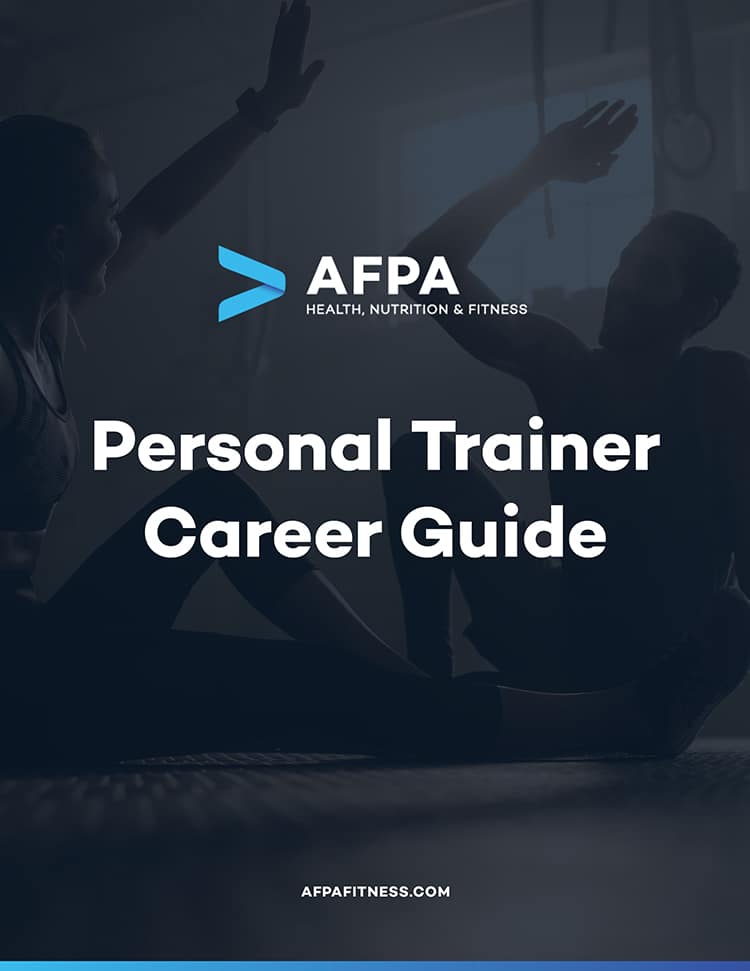Editor’s Note: This post was originally published November 2014 and has recently been updated and revised for accuracy and comprehensiveness.
Are you passionate about physical fitness, training and motivating athletes to excel and improve their performance? Do you already have knowledge and expertise from participating in sports throughout your life? As a Strength and Conditioning Specialist, you can work with a variety of different athletic individuals, from aspiring to professional athletes. If you’re interested in a career that is not only fulfilling mentally, but physically, and inspires others in the process; a professional fitness career could be right for you.
Steps to Becoming a Certified Strength & Conditioning Specialist
Step 1: Identify Your Goals and Objectives
Before getting started, it’s a good idea to first get yourself oriented; map out your goals and ask yourself questions like “what do I want to accomplish with my certification?” Maybe you want to help others get and stay healthy, or maybe you simply want to turn your passion for health and fitness into a full-time career. Regardless of what your personal goals are, it’s important that you’re able to determine your source of passion and motivation.
After all, becoming a certified strength and conditioning specialist isn’t like being a web designer or a baker; if you decide the fitness specialist path isn’t for you and your heart isn’t in it, you may not give clients the full attention they deserve. If the passion isn’t there, you won’t be able to lead your clients by example and encourage them to live a healthy lifestyle. And that’s what being a fitness specialist is all about!
Learn How to Become a Certified Personal Trainer Online in Less Than 6 Months

Step 2: Find A Place to Get Certified
You have a choice on how you can get your Strength and Conditioning Specialist Certification. An easy way to narrow down the possibilities is to look at your personal goals and other factors may affect your final decision of where to get certified. Look through what the certification course content and requirements and see if it’s the right fit for you. Are you between vehicles at the moment? Consider certification that doesn’t require travel. Does your current schedule leave little time for studying? Look for a certification program that lets you work at your own pace.
Step 3: Hire Your Own Specialist
While working on your certification, a great way to get some hands on experience is to hire a Strength and Conditioning Specialist yourself. Whether the specialist you hire is the perfect example of what you hope to be, or the complete opposite, you’ll learn something by critiquing their approach to training. Focus on improving your techniques and knowledge base, as well as developing your own style.
Developing your style is important and it’s not necessarily something you can learn by staying home—even if you’re staying home studying for your certification. Do you want to take a softer approach to training, doling out wisdom to clients to help them get through barriers? Or would you rather be authoritative and help clients improve through sheer knowledge and a stern attitude? There’s room for all types of training styles; you just need to find the right one for you.
Step 4: Develop Professional Relationships
Another important part of hiring your own specialist is that it allows you to start building professional relationships early. But don’t let it stop there; treat everyone you meet at the gym as a potential client, or as a way to get your name out there. This includes other trainers and specialists, regular gym-goers, and gym staff. For example, front desk associates will likely have a good idea of who’s like for training in the gym.
It’s important to build and maintain a positive reputation before you’re certified and throughout your career. Start working on this early to give yourself the best chance for success once you’re certified.
Step 5: Find the Best Fit
While people will definitely play a huge part in your career, what you do and where you do it is also important. So, while you’re meeting new people and working toward your certification, take time to scope out gyms in your area as well. Look for gyms that align with your needs and will align with your clients’ needs. For example, if you plan to include plyometrics as a key aspect of your clients’ training regimen, you’ll want to consider a gym that has the room required for this.
Step 6: Become A ‘Master’ in Your Field
Once you’re certified and have laid the groundwork for success, the work isn’t over. Push yourself as hard as you would push your clients toward becoming the best possible certified strength and conditioning specialist you can be! This includes mastering a few crucial elements beyond what you covered preparing for your certification. Some of these have been covered above:
- Become a master at networking
- Build a solid relationships with gyms in your area
- Master the consultation
When it comes to the consultation, your approach is critical since this is your chance to make an excellent first impression with a potential client. And you need to be comfortable breaking the ice and asking the right questions, while exuding confidence and positivity throughout.
Interested in Pursuing a Career as a Strength and Conditioning Specialist?
The AFPA Strength and Conditioning Certification course offers an in-depth look at strength training for the upper, lower and core sections of the body; safe and effective personalized training programs for men, women, children, and the elderly; strength and conditioning programs for athletes of all types for various sports at various ages and much more!
Drawing on the latest scientific principles and theories related to resistance training, this program provides the “how” and the “why” behind the proper performance of popular upper-body, lower-body and trunk exercises. By understanding the purpose and correct form for each exercise, you can gain the full benefit each exercise provides and avoid injury. You will also learn the latest information related to resistance training program design, training systems, periodization principles and a continuum of training programs. More importantly, you will learn how to apply this information so your clients get optimal results, while avoiding injury.
Upon completion of the Strength and Conditioning Certification course you’ll be able to design scientifically sound resistance training programs, modify and adapt programs to meet the needs of special populations, and implement strength building exercise programs design build power and strength.




